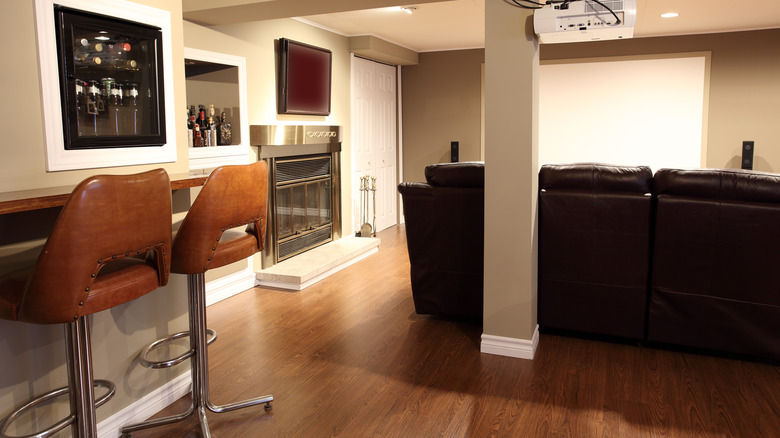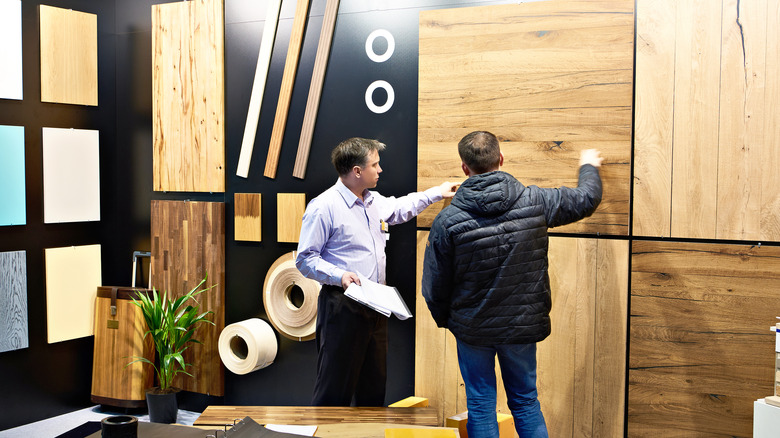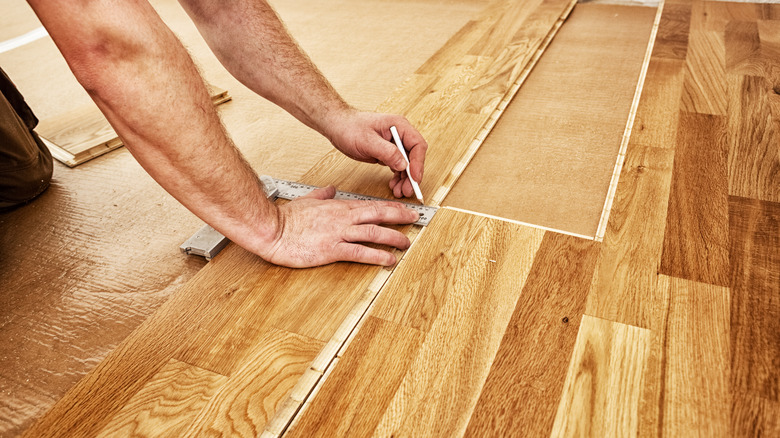What To Consider Before Installing Hardwood Floors In The Basement
Whether you're renovating your basement to spruce it up or building a home from scratch, flooring is a huge consideration. After all, you'd want to pick a basement flooring that looks elegant, can withstand the test of time, and is comfortable underfoot. While organic hardwood floors fit the bill and check all three boxes, they aren't ideal for an underground room. The primary reason is that they aren't water-resistant and can get warped over time if installed in a basement.
Since underground rooms are close to (or under) the water table, there's a good chance the moisture would leak into the flooring. This becomes even more of a concern if the foundational layer is made of concrete. It doesn't matter if the layer has been sealed; moisture will make an appearance and damage your expensive hardwood floors. Plus, the flooring is susceptible to scratches and denting and won't give you a high ROI (return on investment) if your pets or kids will be spending a substantial chunk of their time downstairs.
Things to consider before opting for hardwood floors
As mentioned, the most important thing to consider when installing hardwood floors in the basement is that the flooring will be subject to moisture. The problem won't just be the moisture seeping in from the nearby ground. Water from above can also find its way downstairs, causing irreparable damage to your hardwood floors. Moreover, you'll have to deal with the fallout if any of the pipes burst suddenly. A perpetually wet floor will also attract mildew and lead to more issues.
Further, if you have a radiant heat system situated in the underground room, the accompanying heat will spell disaster for these floors. But if you've got your heart set on hardwood floors and find a contractor to install the flooring, remember that this will be an expensive endeavor. You won't just have to fork out money for the material. Basement prep, including laying down a moisture barrier and underlayment, will cost you a pretty penny. Uneven subfloors would need to be leveled and present another challenge. Additional insulation and new plumbing will also raise project costs. The final nail in this proverbial coffin will be the lack of warranty — on the floor and installation.
Engineered hardwood: A better alternative
But you don't have to swap out your Pinterest mood board yet. You can still enjoy the look of hardwood without the associated problems if you opt for engineered hardwood. With a core consisting of at least three layers of plywood that are glued, compressed, and heated together, the product features a layer of wood veneer on top. The end result is a sturdy flooring option that mimics organic hardwood and can easily withstand the moisture in a basement. It also pairs well with a radiant heating system and won't warp over time.
The best part, though? It's a budget-friendly alternative to organic hardwood. Not only is the material relatively cheaper, but you can also save on installation costs, given their interlocking (or floating) mechanism. Just ensure you're handy with a saw since you'll have to cut the undivided planks to suit the room's length. Moreover, you can refinish this artificial hardwood a couple of times when it begins showing signs of wear and tear. However, the number of times you can do that will depend on the thickness of the hardwood, though most professionals would suggest you splurge for thicker engineered hardwood. Also, if you're going the DIY way, ensure you don't skip installing the underlayment and moisture barrier to elongate the life of your basement flooring.


